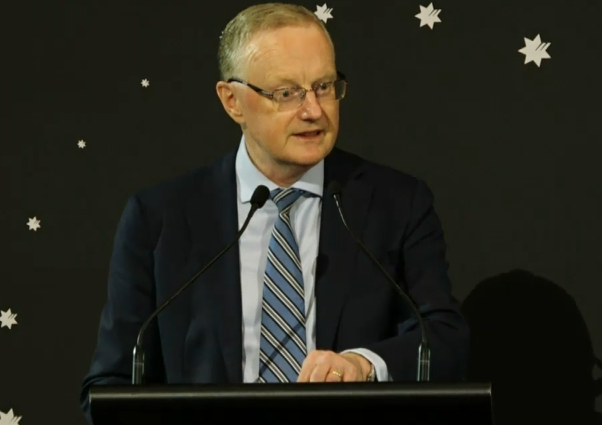
Reserve Bank governor Philip Lowe has called for closer co-ordination of monetary and fiscal policy, suggesting that an independent body with limited control over some fiscal instruments would help eliminate some of the political considerations that often interfere with the formulation of fiscal policy.
Lowe said moving in this direction would require innovative thinking and he was disappointed this this issue was not explored in the Review of the Reserve Bank of Australia.
Lowe leaves the RBA next week, after seven years as governor and 43 years at the bank. He gave his final public address in that role at an Anika Foundation lunch yesterday.
“During my term, there have been times when monetary and fiscal policy worked very closely together and, at other times, it would be an exaggeration to say this was the case,” he said.
“The co-ordination was most effective during the pandemic. During that period fiscal policy was nimble and the political constraints on its use for stabilisation purposes faded away. And we saw how powerful it can be when the government and the RBA work very closely together.
“My view has long been that if we were designing optimal policy arrangements from scratch, monetary and fiscal policy would both have a role in managing the economic cycle and inflation, and that there would be close co-ordination.
“Monetary policy is a powerful instrument but it has its limitations, and its effects are felt unevenly across the community. We could do better.
“Fiscal policy could provide a stronger helping hand, although this would require some rethinking of the existing policy architecture. In particular, it would require making some fiscal instruments more nimble, strengthening the semi-automatic stabilisers and giving an independent body limited control over some fiscal instruments.” He said periods of low inflation were particularly difficult for central banks to deal with, as the cash rate approaches its lower bound. Unconventional monetary policy tools can be used but they have limited effectiveness.
At such times, better co-ordination of monetary and fiscal policy is particularly important.
On the outlook for inflation, Lowe said it would be difficult to return to an economy where inflation tracked in a narrow range, as it did for many years before the pandemic.
“The increased prevalence of supply shocks, de-globalisation, climate change, the energy transition and shifts in demographics mean either steeper supply curves or more variable supply curves.
“While this doesn’t mean that the inflation target can’t be achieved on average, it does mean that inflation is likely to be more variable around that target.”
Another reason for closer policy co-ordination.